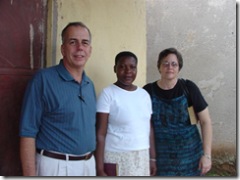How could the Apostle Paul be on trial? Why so many appearances in court? In the last chapters of Acts we see him on trial before the Sanhedrin, he is brought before two Roman Governors and has another hearing before King Agrippa II. Each trial was convened for the purpose of uncovering what charges the Jews had against Paul.Â
Speaking clarity into the confusion that exists, Paul states, “My brothers, I am a Pharisee, the son of a Pharisee. I stand on trial because of my hope in the resurrection of the dead.” (Acts 23:6)
Why does Paul think this is the crux of the matter? I remember reading a quote by a Canadian scientist named G. B. Hardy regarding this question.
 When I look at religion I have two questions. One, has anybody ever conquered death and two, if they have, did they make a way for me to conquer death?
When I look at religion I have two questions. One, has anybody ever conquered death and two, if they have, did they make a way for me to conquer death?
I checked the tomb of Buddha, and it was occupied, and I checked the tomb of Confucius and it was occupied, I checked the tomb of Mohammed and it was occupied, and I came to the tomb of Jesus and it was empty.
And I said, there is one who conquered death. And I asked the second question, did He make a way for me to do it too?
And I opened the Bible and discovered that He said, ‘Because I live you shall live also.’
Paul understood that the claim of resurrection was the pinnacle truth claim of the gospel of Jesus Christ.
At death, all human resources are exhausted there is no power on earth that trumps death. Paul had met Jesus–resurrected from the dead — the One who is stronger than death!
He knew that his brothers in the Jewish faith had nothing greater than this life giving Jesus. Their way of dealing with death was to avoid it in order not to be defiled. They warned their followers to stay away from dead bodies and tombs so that there would be no chance of becoming unclean from the corrupting influence of death. The truth was avoidance was all they could offer and there is not way to ultimately avoid death.
But Jesus! Rather than avoid death Jesus reached out to touch the dead. Rather than be defiled Jesus’ touch brought life to that which was dead!
His resurrection is a message–it is the message and Paul was so secure in the truth of it that he was willing to die knowing that yet would he live.
Christ’s resurrection is an invitation to be united with the One whose life overcomes death. With our future secure we are freed to really live the life we have been given here and now.
“I am the resurrection and the life. He who believes in me will live, even though he dies; and whoever lives and believes in me will never die.
Do you believe this?” (John 11:25-26)
Faith in Jesus is Life Giving and Death Defying!
 “He wakens me morning by morning, wakens my ear to listen like one being taught.”Â
“He wakens me morning by morning, wakens my ear to listen like one being taught.” 








